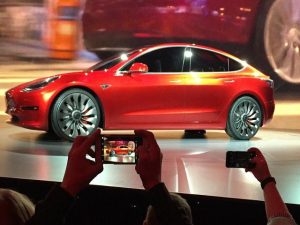Elon Musk, the CEO of Tesla, has discovered a surprising friend in Indian boss of Mercedes Benz. Roland Folger needs the government to provide incentives on imports of electric-car until domestic output turns out to be viable. This will be done only if New Delhi is eager on concluding transport of fossil-fuel by end of 2030.
Folger, the Managing Director of Mercedes Benz for India, claimed worldwide that the German auto manufacturer is deeply investing for electric mobility in technology. And if sufficient support is given, these cars may crave their path to India by the end of 2020.
“We would like to take in electric vehicles. It reflects our plan in general strategy. But it is a catch 22 condition all over the market. You need to cross a certain least number of cars that you can trade sustainably and consistently to make it meaningful spending in a factory. To put us in a place to carry out that, we require a ramp-up time. Also, incentives must be allotted to cars that are not made in the country,” Folger claimed to the media in an interview.
Previously in June, Elon Musk had claimed on Twitter that he is in discussions with the Indian Government concerning provisional relief on import limitations until a local factory is constructed in the nation. Musk at the time had reacted confidently to a tweet from Anand Mahindra. Mahindra poked him to arrive with his electric cars in the country. But, he had alerted that Tesla requires backing to began trades in the nation.
Folger clarified that car makers can’t go from trading 0–1,000 cars overnight since they will require to make the user database. Users will need to witness the cars, test drive them, see what ensues with the battery, and gauge reliability.
NEED VOLUMES FOR THE ECOSYSTEM
“The faster we can slope up, the simpler it will be for us to attract makers to come to the country and make batteries. At this moment, it is not possible due to lesser volumes and that can be best achieved by allotting incentives to CBUs”, he said to the media.
The Government of India is in the procedure of confirming the outline of a determined program that plans to roll out an all-electric fleet by the end of 2030. The fine-print of the program is anticipated to be revealed by the year end.
